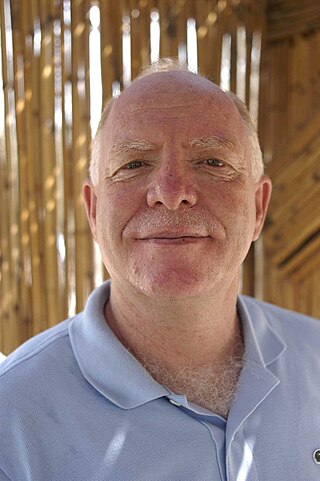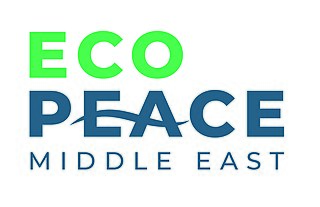Related Research Articles

Arab–Israeli peace projects are projects to promote peace and understanding between the Arab League and Israel in different spheres. These are part of a broader attempt at a peace process between Palestinians and Israelis. Sponsors of such projects can be found both in Israel and Palestine.
Green politics, or ecopolitics, is a political ideology that aims to foster an ecologically sustainable society often, but not always, rooted in environmentalism, nonviolence, social justice and grassroots democracy. It began taking shape in the western world in the 1970s; since then green parties have developed and established themselves in many countries around the globe and have achieved some electoral success.
The following outline is provided as an overview and topical guide to green politics:

The Geneva Initiative, also known as the Geneva Accord, is a draft Permanent Status Agreement to end the Israeli–Palestinian conflict, based on previous official negotiations, international resolutions, the Quartet Roadmap, the Clinton Parameters, and the Arab Peace Initiative. The document was finished on 12 October 2003.

Seeds of Peace is a peacebuilding and leadership development non-profit organization headquartered in New York City. It was founded in 1993. As its main program, the organization brings youth and educators from areas of conflict to its summer camp. It also provides local programming to support Seeds of Peace graduates, known as Seeds, once they return home. It is a non-political organization that teaches youth peace-making skills.
The Committee for Accuracy in Middle East Reporting in America (CAMERA) is an American non-profit pro-Israel media-monitoring, research and membership organization. According to its website, CAMERA is "devoted to promoting accurate and balanced coverage of Israel and the Middle East." The group says it was founded in 1982 "to respond to The Washington Post's coverage of Israel's Lebanon incursion", and to respond to what it considers the media's "general anti-Israel bias".

The Arava Institute for Environmental Studies is an academic studies and research institute located in Kibbutz Ketura on the Israeli side of the Arava Valley. Following the understanding that "nature knows no borders", the Arava Institute's mission is to advance cross-border environmental cooperation in the face of political conflict.

The Washington Report on Middle East Affairs is an American foreign policy magazine that focuses on the Middle East and U.S. policy in the region.
Masdar City is an urban community in Abu Dhabi, the capital of the United Arab Emirates. It was built by Masdar, a subsidiary of the state-owned Mubadala Investment Company, with the majority of seed capital provided by the Government of Abu Dhabi.
Salon Mazal was an infoshop in Tel Aviv, Israel. Its purpose was to spread information and raise awareness of issues related to social change, including human rights, animal rights, the environment, globalization, social and economic oppression, consumerism, feminism and gender issues. It ran by an open, non-hierarchical collective of volunteers at 32 Yitzhak Sadeh Street, Tel Aviv.

Gidon Bromberg is the Israeli director of EcoPeace Middle East. EcoPeace is a regional organization that brings together Jordanian, Palestinian and Israeli environmentalists to promote sustainable development and advance peace efforts in the Middle East. It has offices in Amman, Bethlehem and Tel Aviv, employs 40 paid staff and actively involves hundreds of volunteers.

Munqeth Mehyar serves as Chairman and Jordanian Director of EcoPeace Middle East. EcoPeace Middle East is a unique regional organization that brings together Jordanian, Palestinian and Israeli environmentalists to promote sustainable development and advance peace efforts in the Middle East. The organization has offices in Amman, Bethlehem and Tel Aviv, employs over 40 paid staff and actively involves hundreds of volunteers.

Nader Al-Khateeb is the General Director of the Water and Environmental Development Organization (WEDO), a non-profit Palestinian organization that promotes a number of environmental programs and projects centered on water quality control, water conservation, wastewater treatment and reuse, as well as solid waste management and recycling. He was also the Palestinian Director of EcoPeace Middle East. EcoPeace Middle East is a unique regional organization that brings together Jordanian, Palestinian and Israeli environmentalists to promote sustainable development and advance peace efforts in the Middle East. It has offices in Amman, Bethlehem and Tel Aviv, employs 40 paid staff and actively involves hundreds of volunteers.

EcoPeace Middle East, formerly Friends of the Earth Middle East (?–2014), is a regional environmental peacebuilding organization in the Middle East, bringing together Jordanians, Palestinians, and Israelis to create shared solutions for the most water-scarce region on the planet.
Environmental peacebuilding examines and advocates environmental protection and cooperation as a factor in creating more peaceful relations. Peacebuilding is both the theory and practice of identifying the conditions that can lead to a sustainable peace between past, current or potential future adversaries. At the most basic level, warfare devastates ecosystems and the livelihoods of those who depend on natural resources, and the anarchy of conflict situations leads to the uncontrolled, destructive exploitation of natural resources. Preventing these impacts allows for an easier movement to a sustainable peace. From a more positive perspective, environmental cooperation can be one of the places where hostile parties can sustain a dialogue, and sustainable development is a prerequisite for a sustainable peace.

Majal is a regional not-for-profit organization focused on "amplifying voices of dissent" throughout the Middle East and North Africa via digital media. Founded in Bahrain, the organization "creates platforms and web applications that promote freedom of expression and social justice."
Esra'a Al Shafei is a Bahraini civil rights activist, blogger, and the founder and executive director of Majal and its related projects, including CrowdVoice.org. Al Shafei is a senior TED Fellow, an Echoing Green fellow, and has been referred to by CNN reporter George Webster as "An outspoken defender of free speech". She has been featured in Fast Company magazine as one of the "100 Most Creative People in Business." In 2011, The Daily Beast listed Al Shafei as one of the 17 bravest bloggers worldwide. She is also a promoter of music as a means of social change, and founded Mideast Tunes, which is currently the largest platform for underground musicians in the Middle East and North Africa.
Karin Kloosterman is a serial entrepreneur, biologist, journalist, environmental publisher, founder of Green Prophet, co-founder of Flux IoT, social entrepreneur and futurist.

Alon Tal is an Israeli environmental politician, academic and activist. He was a member of the 24th Knesset between 2021 and 2022, representing the Blue and White political party; founder of the Israel Union for Environmental Defense and the Arava Institute for Environmental Studies; and co-founder of Ecopeace: Friends of the Earth–Middle East, This Is My Earth, the Israel Forum for Demography, Environment and Society, Aytzim: Ecological Judaism, and the Green Movement. Tal was appointed chair of the Department of Public Policy at Tel Aviv University in 2017.
Aytzim, formerly the Green Zionist Alliance (GZA), is a New York–based Jewish environmental organization that is a U.S.-registered 501(c)(3) tax-deductible nonprofit charity. A grassroots all-volunteer organization, Aytzim is active in the United States, Canada and Israel. The organization is a former member of the American Zionist Movement and has worked in partnership with Ameinu, the Coalition on the Environment and Jewish Life (COEJL), Hazon, Interfaith Moral Action on Climate, Interfaith Oceans, GreenFaith, Mercaz/Masorti, the National Religious Coalition on Creation Care, and the Jewish National Fund (JNF)—although Aytzim has long criticized JNF for not prioritizing sustainability and environmental justice in its actions. Aytzim's work at the nexus of Judaism, environmentalism and Zionism has courted controversy from both Jewish and non-Jewish groups.
References
- ↑ "Green Prophet's Top 7 Mideast Eco-Tourism Spots". Trehugger, Jennifer Hattam August 8, 2009
- 1 2 "Eco-Muslims Greening the Earth", Aquila Style Magazine, By Laila Achmad, Friday, 31st August 2012
- ↑ Daniel E. Orenstein; Alon Tal; Char Miller (1 December 2012). Between Ruin and Restoration: An Environmental History of Israel. University of Pittsburgh Pre. pp. 348–. ISBN 978-0-8229-7811-4.
- ↑ "Roots of Justice, Green Shoots of Hope". Peace x Peace, March 2012 -By Mary Liepold
- ↑ "The Mideast’s Environmental “Prophet”", The Green Edge, The Cutting Edge News, Ruth Eglash, September 11th 2011
- ↑ "Green news harvest: 500-mile fuel cell car, Linux gets 'green flag'". CNET, Martin LaMonica, June 10, 2008
- ↑ "An Interview With Karin Kloosterman, Editor of greenprophet.com" Archived 2008-05-31 at the Wayback Machine . New Vilna Review, May 27, 2008
- ↑ "She Joined the Tribe and Thrived". 14 June 2018.
- ↑ "Masdar City’s Hidden Brain". ARPA Journal. by Gökçe Günel May 15, 2014